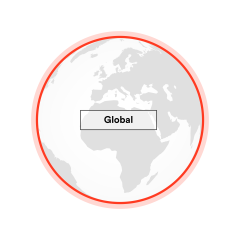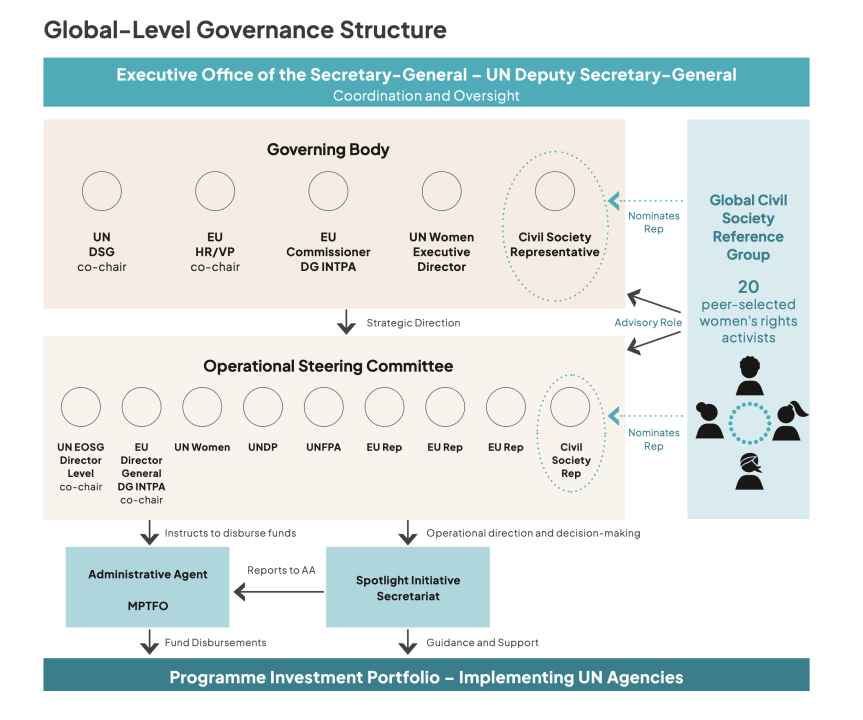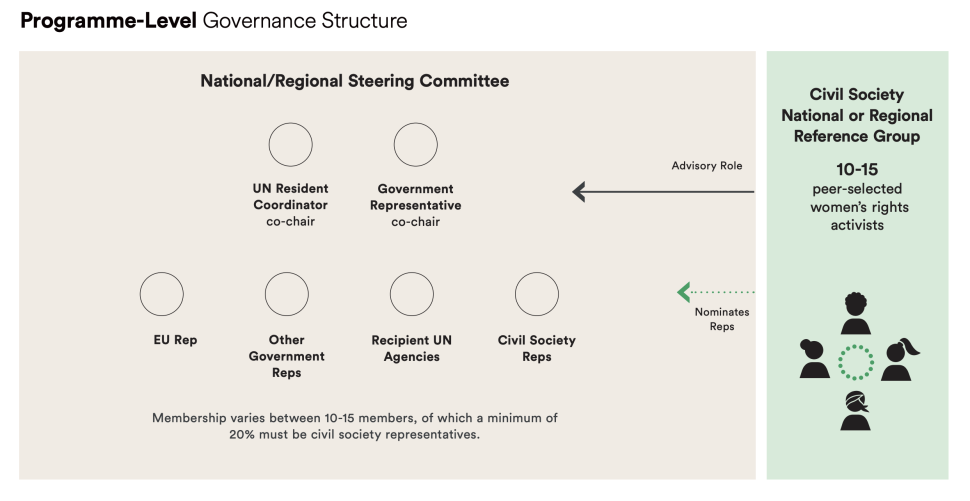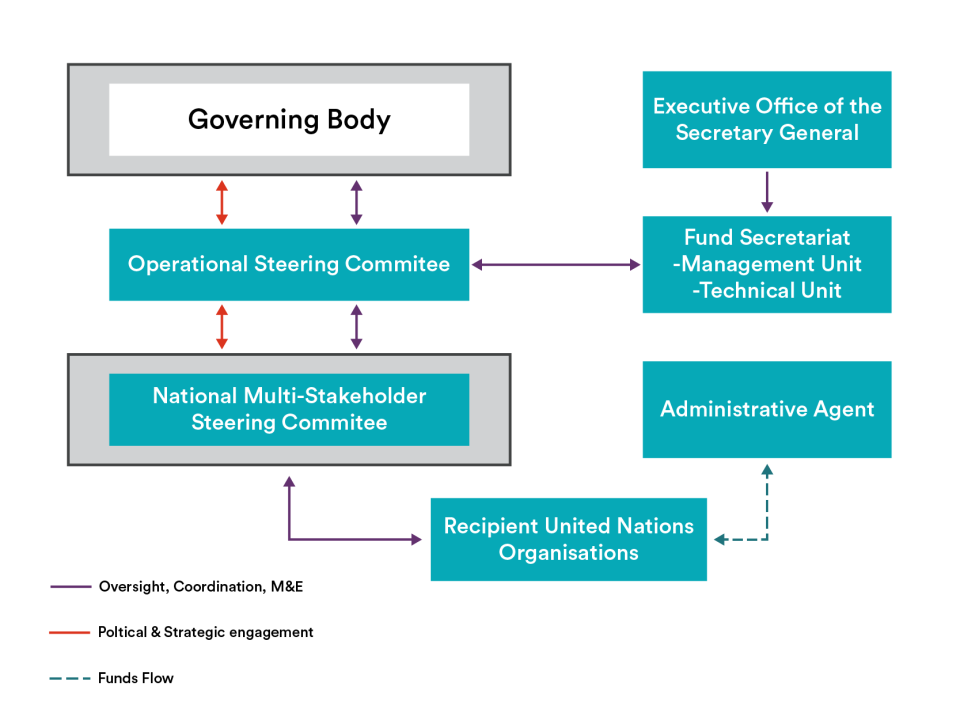Set up effective governance mechanisms

Set up effective governance mechanisms
Case Studies

Spotlight Initiative relies on a multi-tiered and multi-sector governance structure at the global and programme levels to make decisions and steer work toward its objective of ending violence against women and girls. From the onset, Spotlight Initiative established a clear governance architecture and administrative arrangement, with three core functions: governance by global and country decision-making bodies, daily management and administration supported by dedicated teams, and implementation by the Recipient UN Organisations (RUNOs).


“A key good practice agreed across all Reference Groups is our representation and participation in the governance and decision-making bodies... having a civil society representative independently chosen by the group, proves to be an essential foundational piece to any initiative” - Shamah Bulangis, Global Civil Society Reference Group member and representative to the Operational Steering Committee.
The Governing Body acts as the overarching high-level strategic direction, partnership and cohesion mechanism for the initiative, creating a high-level forum that facilitates consultation among stakeholders, including partner countries, to agree on common strategic communication lines and take stock of overall progress. The roles and responsibilities of the Governing Body include strategic oversight and approval of operational tools.
The Governing Body delegates specific functions to an Operational Steering Committee whose role is to ensure effective management and coordinate all operational and technical aspects of the initiative (including the launch of programmatic cycles), consider and make recommendations on Investment Plans of the Initiative, advise on resource allocation, agree upon joint programmes and budgets, and propose the transfer funds from the Administrative Agent transfer funds to Recipient United Nations Organisations, subject to United Nations regulations, rules, policies and procedures.
In April 2019, the Global Civil Society Reference Group was established through an open and civil society-led process. The Group is comprised of 20 diverse women’s rights and feminist activists, with strong track records of working to eliminate violence against women and girls and achieving gender equality more broadly. The Group is represented on the Governing Body and Operational Steering Committee, where it holds an equal role as other members.
At the programme level, programmes are governed by National and Regional Steering Committees. Steering committees are context-specific and aligned with the priorities of each programme, and they provide oversight and help facilitate coordination. Here, too, Civil Society Reference Groups at national and regional levels enable the systematic engagement of civil society, including within Spotlight Initiative programmes’ governance structures.



Independent monitoring and reporting by civil society on programmatic contributions can be critical to upholding programme legitimacy, relevance and accountability. In 2020, the Count Me In! Consortium and several members of Spotlight Initiative Civil Society Reference Groups collectively developed a Civil Society Monitoring Toolkit to monitor the work and contributions of Spotlight Initiative. Featuring a set of 26 indicators, the Reference Groups can use the toolkit to monitor the implementation of Spotlight Initiative programming at country, regional and global levels, with indicators focused on three key areas:
- Participation of civil society and intersectional feminist movements in governance, decision-making and programming
- Funding mechanisms and the disbursement of funds to feminist organisations and networks
- Implementation, including how well Spotlight Initiative integrates the perspectives of feminist activists and constituency-led organisations
In 2022, in response to requests for more technical support, the Secretariat and the Global Civil Society Reference Group conducted global peer-learning workshops to exchange lessons and experiences on their monitoring work. Monitoring has also resulted in the development of Advocacy Scorecards – a concrete tool to hold Spotlight Initiative accountable, with reference groups in Argentina, Belize, Liberia, Niger and Zimbabwe having produced such scorecards.








